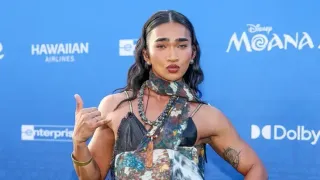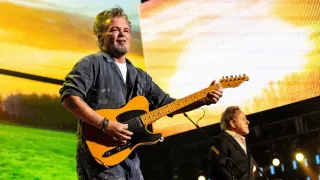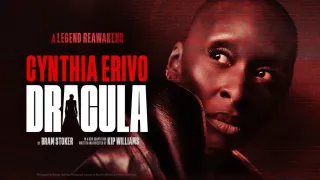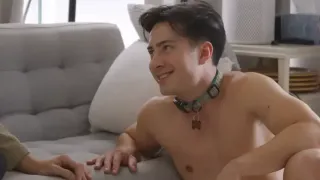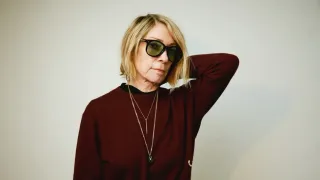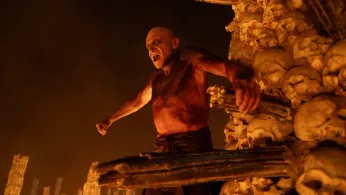
4 hours ago
‘28 Years Later: The Bone Temple’ Is a Bonkers and Triumphant Zombie Movie
Mark Kennedy READ TIME: 4 MIN.
You know what zombie movies never seem to have enough of? Dancing. They've got gore and screaming and lots of guttural snarling, but no boogie. That all changes with “28 Years Later: The Bone Temple” and the dancing here is to — naturally off-kilter — 1980s heroes Duran Duran.
The fourth entry in an ever-more engrossing franchise is absolutely bonkers — and a triumph. It mixes dark, queasy disembowelment and laugh-out-loud humor in a way that both subverts the genre and leads a way out of it, too.
Nia DaCosta directs from a returning Alex Garland script and it starts right where 2025's “28 Years Later” — directed by Danny Boyle — left off. If this is your first encounter with the series, you don't necessarily need to go back to 2002's “28 Days Later” but at least to last year's entry.
Garland's script crackles with jokes about Britain's National Health Service and “Teletubbies” as it sets up an ultimate showdown between good and evil across a flower-and-meadow countryside. DaCosta is fabulous, leaning into the dark and the light with assurance, nailing the twisted tone and celebrating the weirdness.
We pick up immediately after Alfie Williams’ Spike is rescued from a gang of zombies — excuse me, a gang of infected — by another gang of predators led by Sir Jimmy Crystal, whom we first met as an 8-year-old orphan in the last movie. He's all grown up and become a sadistic satanist, which happens sometimes without good adulting.
Jimmy — played by a diabolical Jack O’Connell in a tracksuit and gold chains, like a low-level Mafia lieutenant from “The Sopranos” — leads a band of young psychopaths, as deadly to both virus survivors as the snarling, semi-human infected. They don blond wigs and each is named Jimmy. There's a whiff of “A Clockwork Orange” about them — menacing, prone to ultraviolence, gleeful in destruction. “Does that sound like normal screaming, Jimmy?” one asks. Spike, bless his heart, doesn't belong here.
Sir Jimmy's opposite number is also out there, the scientist-doctor Dr. Ian Kelson, who hopes to find a cure for the virus. He's a humanist, with a huge heart and open arms, even if he does construct tall pillars out of the bleached bones of the dead. That sounds bad, but he does it to memorialize them, an in memoriam segment made out of calcium.
Kelson is played by a returning Ralph Fiennes, who is magnificent, totally committed, even going full Monty. There's no winking in anything he does, just pure soul. People are people, no matter how damaged, he believes. “There's just us,” he says. Bright orange due to the iodine he paints on his skin to ward off the virus, Kelson is alone in his bone temple, which, with a few tea lights, really pulls the look together.
In perhaps a twist no one was expecting, Kelson gingerly reaches out to an infected Alpha — played by former MMA fighter Chi Lewis-Parry — who seems to enjoy being drugged by the doctor's blowgun. It turns out they both like a hit or two of morphine and looking up at the sky, all blissed out. Or dancing.
That's when Duran Duran comes in, supplying “Ordinary World,” “Girls on Film" and “Rio” to a sight rare in zombie movies: Two whacked-out guys — one an eye-bulging monster who rips heads off with the spines still attached, the other a skinny Englishman who starred in “The English Patient” — swaying hand-in-hand to pop synth. (My money was on "Save a Prayer," but it's OK.)
There's plenty of good music in “28 Years Later: The Bone Temple,” including Radiohead's “Everything in Its Right Place” and one of the most gloriously unhinged uses of Iron Maiden’s "The Number of the Beast” ever conceived. If the previous film had a Fellini-esque vibe, this one has punky, anarchic feel.
Who will emerge victorious on this blighted island? Sir Jimmy or Dr. Kelson? And have you noticed that the hallmark of every zombie movie — the constant running away from the snarling undead — has been quietly replaced by examinations of cults and mortality, the long-term effects of trauma and what it means to be human? Call it almost post-zombie.
There's a fifth movie in this franchise in the works, with some clues that this nightmarish world may yet produce a happy ending. But they're getting better and better and, as insane as it sounds, it's going to be sad to see it go. Long may the zombies dance. Perhaps we should take advice from the great poets of our time, Duran Duran: “I will learn to survive.”
“28 Years Later: The Bone Temple,” a Sony Pictures release in theaters Friday, is rated R by the Motion Picture Association for strong bloody violence, gore, graphic nudity, language throughout and brief drug use. Running time: 109 minutes. Three and half stars out of four.
